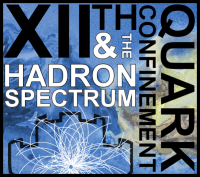Speaker
Description
Current experiments aim at measuring parameters of Standard Model to an unprecedented accuracy, and as a consequence require theoretical calculations of radiative corrections that match that precision. The so-called dispersion corrections, or hadronic box corrections represent one of the main limitations of the reach of modern experiments in determining SM parameters and constraining the New Physics contributions in low-energy experiments. I review the state of the art of the hadronic structure-dependent corrections to the measurement of the charge radii of light nuclei (most importantly, the proton radius puzzle) and the running of the weak mixing angle accessed with parity-violating electron scattering and parity non-conservation in atoms.
